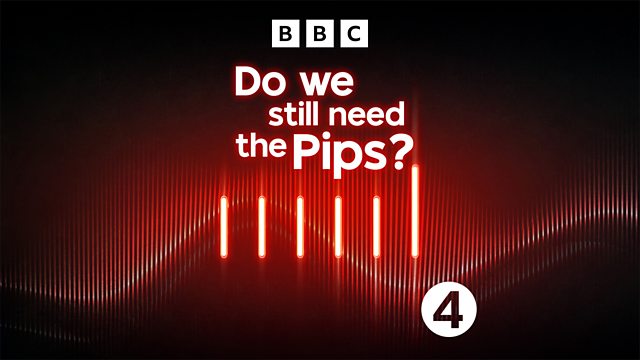 Many thanks to SWLing Post contributor, Richard Langley, who shares the following piece which recently aired on BBC Radio 4 (click link below to listen):
Many thanks to SWLing Post contributor, Richard Langley, who shares the following piece which recently aired on BBC Radio 4 (click link below to listen):
To mark the centenary of the Greenwich Time Signal on the BBC, Paddy O’Connell asks the unaskable – Do We Still Need the Pips?
First broadcast at 9.30pm on Feb the 5th 1924, the six pips of the Greenwich Time Signal have become synonymous with Radio 4.
But today digital broadcasting has rendered this time signal delayed and inaccurate. Plus their immovable presence can cause accidents on-air, and no-one wants to crash the Pips.
So after 100 years, should Radio 4 just get rid of them? What is the point of a time signal in 2024 anyway?
Paddy O’Connell looks back across a century of organised beeps, and meets the people who listen to, broadcast and sometimes crash in to the Pips to find out what we really think about these six little characters.
With interviews including Mishal Husain, Robin Ince & Brian Cox, Jane Steel, Richard Hoptroff, Jon Holmes and David Rooney.
Produced by Luke Doran.
Original music by Ed Carter.

Well after working for the BBC for 29 years I have come to associate them with BBC broadcasting both on Radio 4 and the World Service.
I have to admit that I am a bit of a nerd over time accuracy and expect my watch to be accurate within a few seconds and my phone usually within a couple of seconds.
In the 1970s I was working on secondment to Qatar Broadcasting and in my spare time built a a six digit digital clock using nixi tubes. At that time the only other digitsal clock I was aware of was at TV Centre in the control room.
One afternoon a friend who worked at the tropo scatter station operated by Cable and Wireless called on me when I was out at work and he decided that my clock was 12 seconds fast. Obviously without considering how it might have worked, he turned off the mains supply and was surprised to see it restart at 0000hrs, 0 min and 0 secs.
That then required me to add a standby battery and a crystal oscilator for the time reference.
But to recap, I consider the time pips are such an iconic part of the BBC that I certainly do not think that they should be given up.
Coincidence?
https://www.bbc.co.uk/programmes/m0000nfr
It’s 2:13pm on a remote Scottish island where the only inhabitants are two sisters.
One of them hasn’t spoken to the other for over two years.
They’re listening to The Archers, and then BBC Radio 4 goes off-air.
Now they have to learn to live together and without the one thing they each cherish: Radio 4.
Written by By Oliver Emanuel.
Older …… Shauna Macdonald
Younger …… Jessica Hardwick
Icelandic man ..…. Jakob Jakobsson
Radio Announcer …… Ken Mitchell
Director: Kirsty Williams
First broadcast on BBC Radio 4 in October 2018.
Well, I guess you’d need to find out what Gladys Knight thinks! (Ducking)
Sorry, couldn’t help it. Seriously though, I hope they keep them. Too much of broadcast radio has fallen by the wayside. I listen to old airchecks of stations from the 60s through the 90s, and I hear how exciting radio sounded and hear why people like me got into the business in the first place. Today, broadcast bradio is boredom personified punctuated by 12 minutes of commercials in a row twice an hour. On my 30 minute commute I can hear two songs and a bunch of spots and that’s it. Argh…
The most accurate (within +/-3 ns) is available from GPS receivers. The Global Positioning system uses low orbiting satellites which transmit their location and very accurate UTC time. Remember that longitude is the time difference between longitude at Greenwich and the current East-West location.
The time in the satellites is compared to over 30 Caesium beam atomic clocks around the world and the average coincidence is used.
Greenwich Mean Time has been replaced by Universal Co-ordinated time and the Greenwich Observatory is now just a museum.
https://www.oscilloquartz.com/en/products-and-services/cesium-clocks
Sadly the advent of digital distribution and broadcasting have introduced unpredictable delays which vary between platforms. Delays from a hundred milliseconds to about one minute are commonplace and no-one can rely on the pips any more. So is there any point in keeping them?
CBC Radio One got rid of the 1pm time pips that had been broadcast daily since the 1930s (if not the 20s). From a sense of tradition I was sad to see them go. As accurate time checks they fail when listening to anything but a radio broadcast. For me though the 1pm time pips were a marker that we were headed into afternoon activities. On one job I had it was my sign to get back to work. It never hurts to have a reminder that its the top or bottom of the hour., whether 100% accurate or not.
My grandfather was a CN Railway engineer. it was a firing offense if his pocket watch (which I still have but no longer works) was off by more than a second or two. He set it every day by the CBC pips.
The world will go on without the time pips and we will adjust, but I’d miss the continuity.